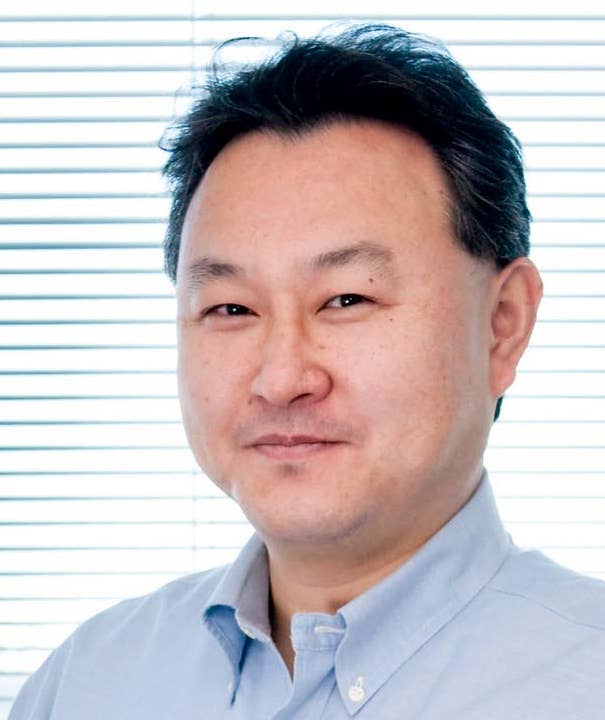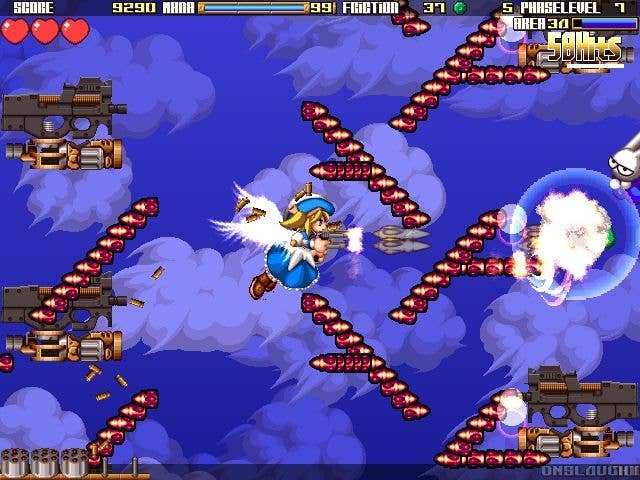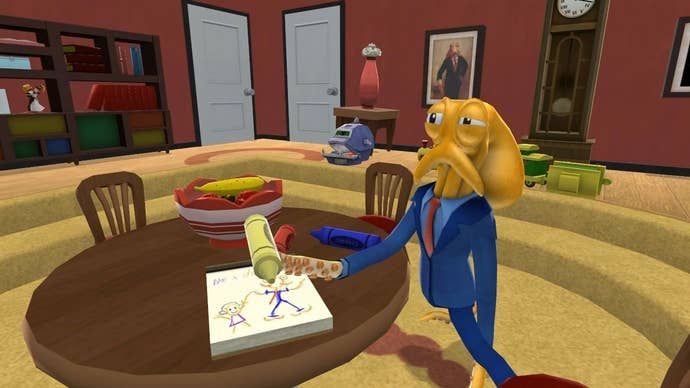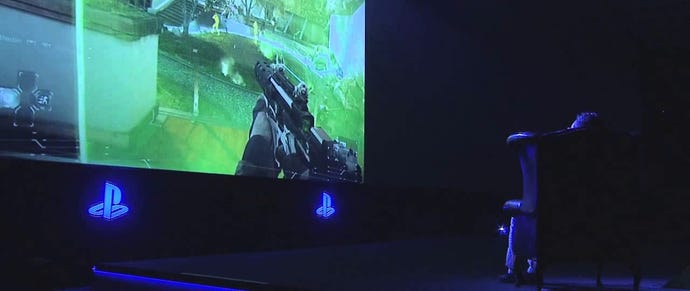TGS: An Audience with Shuhei Yoshida
The jolly face of Sony talks indie games, mobile's impact on handheld gaming and more.
This article first appeared on USgamer, a partner publication of VG247. Some content, such as this article, has been migrated to VG247 for posterity after USgamer's closure - but it has not been edited or further vetted by the VG247 team.
Sony's President of Worldwide Studios, Shuhei Yoshida, is very much the friendly face of the company.
We caught up with Yoshida at Tokyo Game Show to pick his brain on a variety of subjects ranging from Vita TV to indie developers -- the things the USgamer team (and some of you, we're sure) want to know about Sony's plans for the future.
USgamer: The best thing Sony’s doing right now is embracing indie developers.
Shuhei Yoshida: Thank you for saying so.
USgamer: That appears to be a U.S.-based initiative, mostly?

Yoshida: Well, I would say that it’s equally European. They’re as active, in my mind, as the SCEA people.
USgamer: Do you want it to become more of a global initiative, especially in Japan?
Yoshida: Absolutely, yes. Now SCEJA has realized that there’s this indie thing happening in the U.S. and Europe, we’re seeing great games released there. But most of them don’t come to the Japanese market. The Japanese consumers are missing out on some great games that we’re seeing coming out almost every week on PS Vita or PS3, and now PS4, where we have some excellent games announced. So SCE Japan and Asia have started an initiative to break down the barriers to these games, which are made outside Japan by indies who don’t have any representatives in Japan that could publish their games here.
There are some issues that SCEJA has to sort out, like ratings and that kind of thing. The other thing, of course, is to help grow the indie developers in Japan. There is an indie scene here already, on Steam and PC. SCEJA is contacting them and trying to work it out so that they have more interest in making games for the PlayStation platform. On Sunday, after TGS is over, we’re holding a party for Japanese indie developers and journalists and the SCEJA developer support people to meet each other and have some presentations. We want to start some networking between them. Now, SCEJA is serious about supporting indies. That’s why, in our presentation a couple of weeks ago, we talked about indie support. At the Sony booth for this TGS, there are games like Octodad or Contrast being shown for Japanese consumers to try out. And at today’s keynote, Mr. Ito talked about indie support. As a platform, it’s very important everywhere, including Japan.
USgamer: Most indie developers in Japan usually work on the PC, though there have been a couple of examples of indie circles coming to console, like Gundemonium Recollection on PS3. Do you have a plan for attracting those kinds of PC developers to the PS4 and the Vita?
Yoshida: Yes, yes. SCEJA’s people are contacting developers on the PC, as well as the mobile platforms. They’ve had success courting indie mobile developers in Japan to make games for PlayStation Mobile. It’s a small platform now, but still, it’s an effort. They’re investing more in the support team at SCEJA to be able to reach out to both PC and mobile developers.

USgamer: Are you able to reveal any Japanese developers that you’ve been working with whose work might be able to come over…?
Yoshida: I was pushing a key person at SCEJA, Mr. Ueda, who’s the head of marketing at strategy. He’s on top of this initiative now. I was teasing him – at E3 we had this great showcase of indie developers, and at Gamescom we had another great showcase, so now he has to show some indie-developer games on PS4 or Vita from Japanese developers. He said, “Yeah, I know, I know.” So it’s a goal. I hope that some time next year, we’ll be able to do that, to showcase games made by Japanese indie developers on PlayStation platforms.
US: Your division is Worldwide Studios, but most of the games come from three territories. Is there any effort to reach out to more emerging companies? For example, eastern Europe or South America?
Yoshida: Under the surface, we’re doing that. So, PlayStation is doing business in these regions, and those platform teams definitely want to see the local development communities grow. There’s an effort from development support teams to reach out to developers in those regions. As well, they’re asking for our studios’ involvement, to work with developers in these regions and talk to them and give them feedback. With that effort, I’m hoping some that some real projects may start to happen. Especially, Michael Denny is very active in reaching out to different countries in the European region. Each country is different in terms of culture. People in smaller countries love to have their own locally-developed games.
USgamer: Are there any countries outside the major territories – for example, Brazil – where Sony is particularly interested?
Yoshida: I wouldn’t name just one. But our teams in the states do have regular contact with developers in South America – in Brazil, in Argentina.
USgamer: Do you feel that the possible success of the Vita TV might cause developers to neglect Vita’s portable features, like the touch screen?
Yoshida: I don’t think so. We’re working with developers so that the game will know which device it’s booting up. Developers have a way to customize the interface if the game is working on the PS Vita portable or the Vita TV. Touch has some distinct advantages. People like using smartphones or tablets that way. In many cases, the Dual Shock has to replicate that touch control. So I don’t think people will shy away from using touch. It’s much more intuitive.

USgamer: What’s the road map for Vita TV?
Yoshida: After Japan, we just announced our plan to launch in Asian countries in January. That’s all that’s been announced at this time.
USgamer: How badly has the dedicated handheld market for gaming been hurt by mobile phones and tablets, in your opinion?
Yoshida: Hm, hmm. How badly? Quite badly. It’s a matter of convenience. People carry their smartphones with them all the time. The tablet is there at home. So it’s hard to compete with something that easy that people already own. We have to provide a really great value proposition. We have to provide something special when we bring out our portable gaming platforms.

